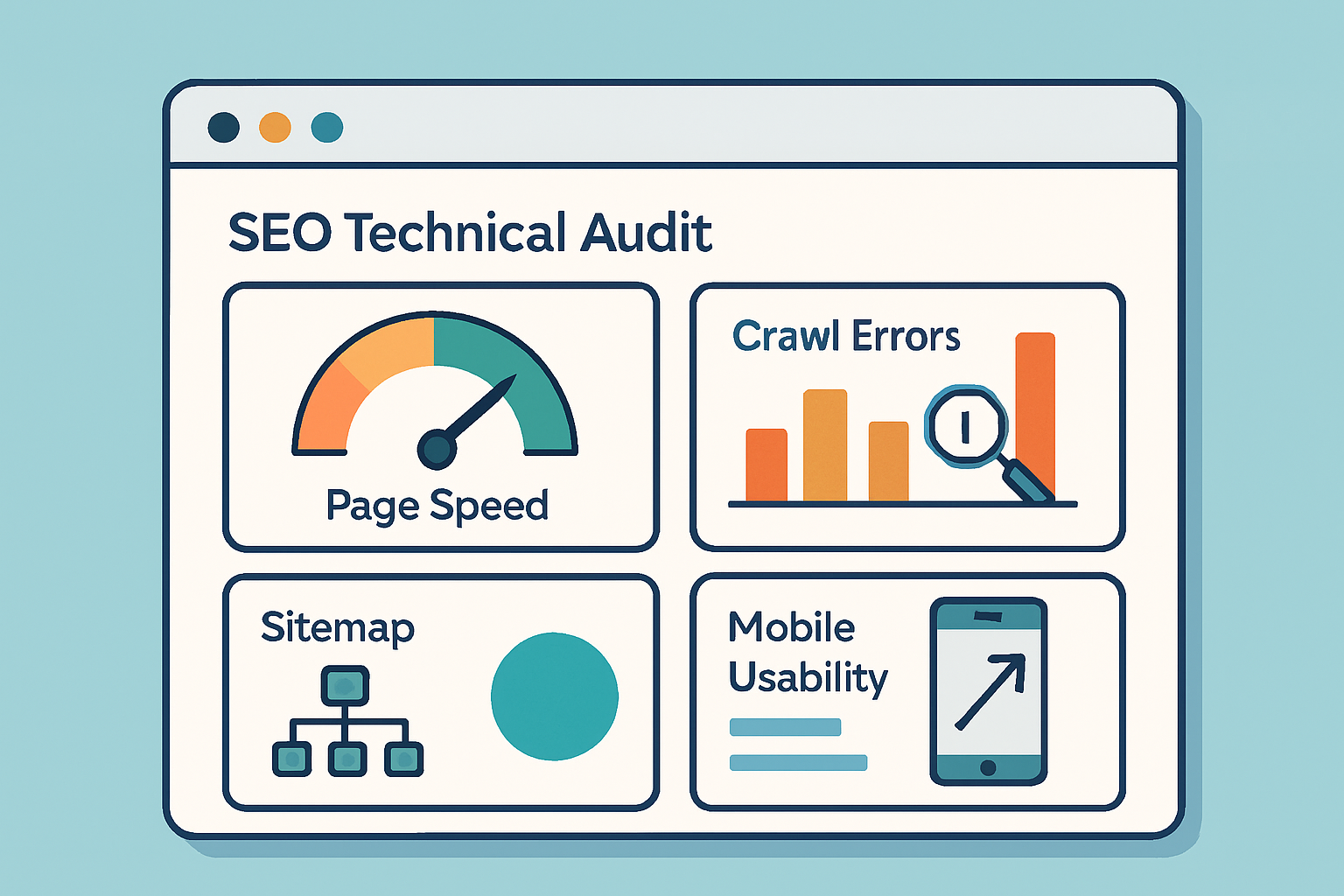
The Benefits of Server-Side Rendering for Content Optimization
Discover why server-side rendering (SSR) is a powerful tool for speeding up web pages, boosting SEO,...

SEO maintenance plays a important but often overlooked role in locking in lasting success on search engines. Once you’ve nailed the initial optimization, keeping those strong rankings from slipping requires a steady hand and regular check-ins on technical details, content quality and user interaction with your site. We dive into advanced SEO maintenance tasks that seasoned managers lean on to keep their edge. From routine site audits that catch sneaky issues to smart content updates and careful backlink reviews, mastering these steps is key to making sure your on-page SEO pulls in quality organic traffic.
Regular SEO upkeep is like giving your website a little check-up—catching issues before they snowball and smoothing how visitors interact with your site while staying in step with those ever-shifting search algorithms.
A thorough site audit is the bedrock of solid SEO maintenance. It shines a light on pesky issues like broken links, crawl errors, duplicate content and slow page speeds that can quietly sabotage your rankings. Running regular audits with reliable tools like Google Search Console or Moz Pro makes it easier to catch sneaky technical and content problems before they get out of hand.
Dive into Google Search Console to sniff out crawl errors like those pesky 404 pages or server hiccups that might be standing in the way of your site getting properly indexed.
Give your site a once-over for broken internal and external links using handy tools like Moz Pro or Screaming Frog—this helps keep visitors happy and steers clear of annoying SEO pitfalls.
Keep an eye on your page load times with Google PageSpeed Insights, then roll up your sleeves and tackle anything slowing things down before users lose interest.
Hunt down duplicate or skimpy content that drags down your keyword focus and search ranking, and then clean house by consolidating or cutting out those redundant pages.
Put your site through its paces on mobile devices to ensure it’s fully responsive and delivers a smooth, frustration-free experience no matter the screen size.
Double-check your structured data setup to fix any errors flagged in your schema and give your pages that extra pop in search results with rich snippets.
Search engines usually have a soft spot for fresh and relevant content that really hits the mark for what users want. Giving your existing pages a regular tune-up keeps that relevance alive and lets you ride the wave of new keyword opportunities. Good content optimization is more than just sprinkling in keywords. It’s about weaving related terms naturally into the mix, polishing your metadata and gently weeding out anything outdated.
Technical SEO issues tend to sneak up on you, slowly chipping away at your rankings and user experience without obvious red flags. Making sure your site structure, XML sitemaps and crawl instructions like robots.txt are in tip-top shape helps search engines properly index your pages. It’s worth keeping an eye on your HTTPS setup and tidying up messy redirect chains. Fine-tuning core web vitals also plays a key role in keeping your rankings steady and your site performance humming.
Keep your XML sitemap fresh and in great shape by making sure it is properly formatted and submitted to both Google Search Console and Bing Webmaster Tools. Think of it as sending out your site's formal invitation to the search engines.
Give your robots.txt file regular attention so important pages get their time in the spotlight while sensitive ones stay hidden from search results.
Check your HTTPS certificate status regularly. If you notice any mixed content warnings, address them promptly and set up proper 301 redirects from HTTP to HTTPS URLs to keep everything running smoothly.
Continue improving site speed by compressing images, leveraging browser caching and trimming any unnecessary JavaScript or CSS that slow down loading because no one likes waiting around.
Monitor your Core Web Vitals, especially Largest Contentful Paint and Cumulative Layout Shift to ensure your site aligns with Google's Page Experience guidelines. After all, first impressions really matter.
Make sure your site feels smooth and responsive on mobile devices. Since most people browse on the go, catering to their needs makes a big difference.

Comprehensive SEO technical audit dashboard visualizing critical site health metrics
Backlinks still hold a heavyweight spot in search engine ranking algorithms, no surprises there. Keeping your backlink profile squeaky clean and trustworthy is not a set-it-and-forget-it deal—it demands a steady eye to catch those pesky harmful links that might sneak in and sabotage your SEO efforts. It’s about scouting fresh opportunities to build solid links that can boost your site’s standing.
Search engines these days tend to focus on user experience signals like bounce rates, dwell time and smooth navigation when figuring out how to rank pages. Nailing these metrics keeps visitors coming back and sends a clear signal to the algorithms that your site is relevant and top-notch.
Structured data and schema markup basically give search engines a much-needed heads-up about the context of your content, which can seriously jazz up how your pages show up in search results with those eye-catching rich snippets. Since your content isn’t set in stone and tends to evolve, it is a smart move to regularly revisit and tweak your schema markup.
Kick things off by giving your existing schema markup a good once-over using tools like Google’s Rich Results Test or Schema.org validators. These handy helpers can catch pesky errors or any bits you might have missed.
Tackle any markup issues you come across sooner rather than later so search engines can read your structured data without getting tripped up.
Think about throwing in some relevant schema types such as FAQ, HowTo, Product or Review to really make your search results stand out.
Whenever you tweak your related content, updating your schema markup along with it keeps everything neat and spot-on accurate.
Search engines don’t sit still—they regularly tweak their algorithms to serve better search results. Staying on top of these changes through consistent SEO maintenance lets you fine-tune your strategies smoothly and avoid penalties while making the most of fresh ranking signals. Being proactive means regularly checking how updates affect your traffic and rankings and ensuring your site keeps pace with evolving quality standards like E-A-T (Expertise, Authoritativeness, Trustworthiness).
| SEO Task | Frequency | Tools Recommended | Estimated Time | Impact Level |
|---|---|---|---|---|
| Perform site audit | Monthly | Moz Pro, Google Search Console | 2-3 hours | High |
| Update content | Every two months | Moz Pro, Google Analytics | 3-4 hours | High |
| Review backlink profile | Weekly | Mangools LinkMiner, Moz Link Analysis | 1-2 hours | Medium |
| Make UX improvements | Ongoing | Google PageSpeed Insights | Continuous | High |
| Refresh schema markup | Quarterly | Google Rich Results Test | 1-2 hours | Medium |
| Monitor algorithm updates | Monthly | SEO news sites, analytics tools | About 1 hour | High |
Conduct a thorough site audit at least once a month. It’s the best way to sniff out and fix any sneaky issues before they become a headache.
Refresh and optimize your main website content every couple of months to keep things fresh and take advantage of new keyword opportunities.
Give your backlink profile a once-over every week. Remove any harmful links and grab promising new ones while they’re hot.
Keep fine-tuning the user experience by paying close attention to engagement data and site performance insights. It’s like having a backstage pass to what your visitors really want.
Update your structured data and schema markup every quarter so you can benefit from the latest rich result features because who doesn’t love a good boost in the search listings?
Stay sharp by watching for search engine algorithm changes each month and then adjust your SEO approach to stay ahead of the pack.

Discover why server-side rendering (SSR) is a powerful tool for speeding up web pages, boosting SEO,...

Discover comprehensive strategies for optimizing single page websites for SEO. Master keyword intent...

Master web development SEO with this practical guide using Semrush. Learn to audit, optimize, and tr...

Unlock your Weebly site's full SEO potential with expert tips and simple tweaks designed to improve...